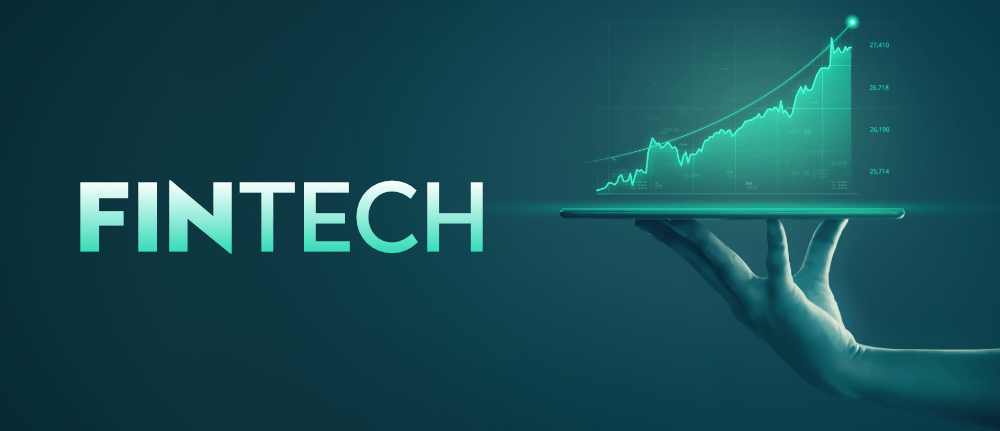Financial Technology has emerged massively in the past 10 years and brought flexibility to its users on their fingertips in the comfort of their homes. Nobody could have imagined having such an easy access for money transfer mechanism through just a few plastic cards.
To simply put, Fintech also known as financial technology means a type of technology that lends users the liberty and access to services like online payment, mobile payments, or even cryptocurrency investments and payments. The thing that is taken as the primary objective is to construct such a medium through which the needs of a user are treated virtually without having to travel to a bank or any financial institution. Basically, it surpasses traditional financial services in the aspect of usability.
Fintech has now made it easy to pay even for a single cup of coffee without having to carry cash in your wallet. Along with the credit cards revolution, financial technology evolved and introduced several major milestones to the mass market, such as ATMs, electronic investment, netbanking, and online stock exchanges.
Types of fintech
There are various types of fintech areas currently in existence, however, a few crucial areas are been mentioned below-
Mobile payment apps and payment wallets are the most common forms of fintech apps that are currently found in the market that keep evolving and diversifying, however, these are a few types of fintech that hold a lot of prominence in the sector. Services like Paypal, Venmo, and Square allow individuals to transfer money to each other or make it easy to transfer money to merchants.
Blockchain : Cryptocurrency exchanges, such as Coinbase, Binance, allow users to buy or sell cryptocurrencies like Bitcoin, ethereum. Blockchain based crypto currencies has started to penetrate markets for use of purchasing online and offline. Also the non fungible blockchain tokens (NFT) have been making headlines in the areas of digital protection of the copyright of real world assets as well as virtual assets. The crypto exchanges like Binance (Binance Smart Chain blockchain network) are providing NFT marketplace. Solana – one of the fastest blockchains also called “Ethereum killer” launched their NFT with the Solana blockchain. Opensea is now also supporting trading of Solana based NFTs.
Crowdfunding platforms such as GofundMe and Patreon have made it flexible for the individual small investors to directly invest their money in businesses, services and products. Crowdfunding is a popular form of fundraising. Crowdfunding mechanism supports multiple people contributing a small amount to a product, a new business. Generally, this pool of people is large, and they may not know each other. This is where the “crowd” in crowdfunding comes from. Instead of having a known small number of investors fund the venture, crowdfunding allows a lot more people to give a little bit of money. The return can be free gifts, repayment of the investment with agreed terms and/or equity in the business. This has opened up the market for new entrepreneurs to float their ideas to wider folks and request small investments from large groups of people to achieve the dream. This is drastically cutting the bureaucratic process and geographical distances between the entrepreneurs and investors. Some of the steller examples of crowdfunded projects are Oculus VR Headset, Pebble watch, PopSockets.
Personal Credit Scoring – There is always a need for taking loans and there are traditional lenders where the credit scores are checked. These credit scores affect and are required for a variety of financial products including but not limited to credit cards, bank accounts, home loan etc… The consumers are always eager to know their credit score without paying any fees to identify the borrowing eligibility and limits. This credit score is the number which shows your financial trustworthiness, or, in other words, how likely these loans would be paid off. There are multiple such companies which are providing the credit information generated by credit agencies to the consumer instead of collecting and researching the information. These companies also provide the products suitable accordingly. The noteworthy companies are Credirkarma, paisabazaat. These credit reports are given for free to the consumers along with access to the multiple services which are depending on the credit score. This is opening the market for consumers as well as small finance companies to provide their services.
The existence of these fintech has simply provided a wide range of horizons for small businesses. It simply is lending its helpful hands to bring recognition, establishment, scale, and thrive to the small business owners. Fintech is widely used by small businesses for the use of funding, payment, processing, and more.
Benefits of Fintech-
There are various benefits that the existence of fintech has given to the business sector. Some of them are-
Universal- as the technology is fast approaching all the sectors, it’s reaching everywhere and has become accessible to everyone all around the world. Fintech has now become universal and is applied almost on every horizon.
Efficiency with cost- Fintech is cost effective and has made it quite easy for almost every business whether small or big to use these platforms or launch new products..
Transparent- Using fintech brings transparency to the table by simply providing all the details of transactions in one place, this is quite accessible, traceable and easy for the consumers.
Secure- Fintech companies and platforms have to adhere to the standard financial regulations as well as cyber regulations to make the offering more safe and secure for the consumers.to protect itself from any outside chance of a hacking or leak of information.
What is the future of fintech in small businesses?
As the technology keeps evolving, various small businesses are emerging and the number of companies in existence are offering more and more products and services. This is bound to increase exponentially. Fintech in the coming years will continue to improve processes and create operational efficiencies for letting small businesses fill the usability and sevicability gap of providing the financial services to the consumer.

